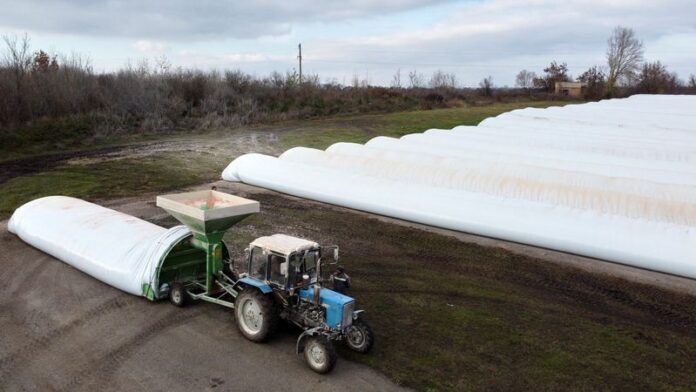Ukraine appealed on Wednesday to the United Nations and Turkey to press Russia to immediately stop hindering Ukrainian grain shipments that supply millions of people and not to use the food as a weapon, according to Reuters.
After an almost six-month blockade caused by the Russian invasion, three Ukrainian Black Sea ports were unblocked at the end of July under a deal between Moscow and Kyiv brokered by the UN and Turkey.
But Ukraine has repeatedly accused Russia of delaying inspections of ships carrying Ukrainian agricultural goods, leading to reduced shipments and losses for traders.
Russia has previously denied the accusations, saying it is meeting all its obligations under the grain export deal.
Two top Ukrainian officials said in a joint statement that “Ukraine is deeply concerned about the destructive actions of Russia”, which result in the delay of the work of the grain corridor and “obstructing the Black Sea Grain Initiative in general”.
Foreign Minister Dmytro Kuleba and Deputy Prime Minister Oleksandr Kubrakov said Russia intentionally slowed down the inspections, demanded unregulated documentation and looked for groundless reasons to stop the inspection.
“Such a destructive Russian policy has resulted in a systematic decrease of the freight turnover within the Grain Initiative,” the ministers said, noting that the world did not receive 10 million tonnes of Ukrainian food in the last three months.
The Ukrainian officials said Russia at the same time increased uncontrolled traffic volume through its Azov and Black Sea ports.
“Inspections of these vessels in the Bosporus are not held. All that makes it possible for Russia to use its commercial vessels for receiving military goods in order to continue the war against Ukraine,” the ministers said.
Russia said this week that it would be “inappropriate” to extend the Black Sea grain deal unless sanctions affecting its agricultural exports are lifted and other issues are resolved.
The agreement was extended by a further 120 days in November and is up for renewal again next month, but Russia has signalled that it is unhappy with some aspects of the deal and asked for sanctions affecting its agricultural exports to be lifted.
Russia’s agricultural exports have not been explicitly targeted by Western sanctions, but Moscow says blocks on its payments, logistics and insurance industries are a “barrier” to it being able to export its own grains and fertilisers.
Ukrainian grain exports in the 2022/23 season, which runs through to June, have fallen 29% to 29.2 million tonnes as of Feb. 13, due to a smaller harvest and logistical difficulties caused by the Russian invasion.


